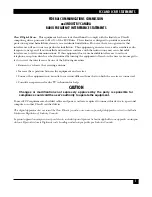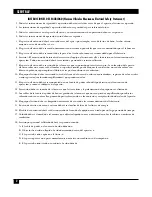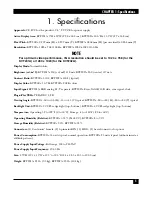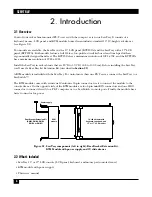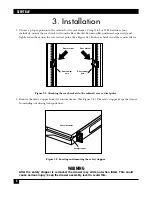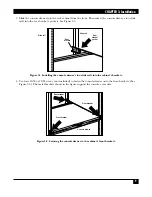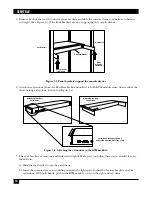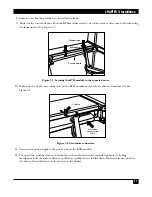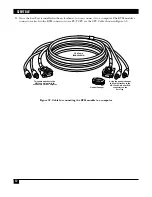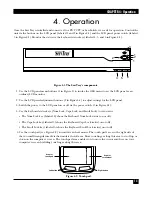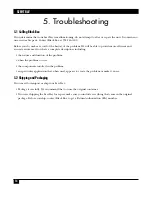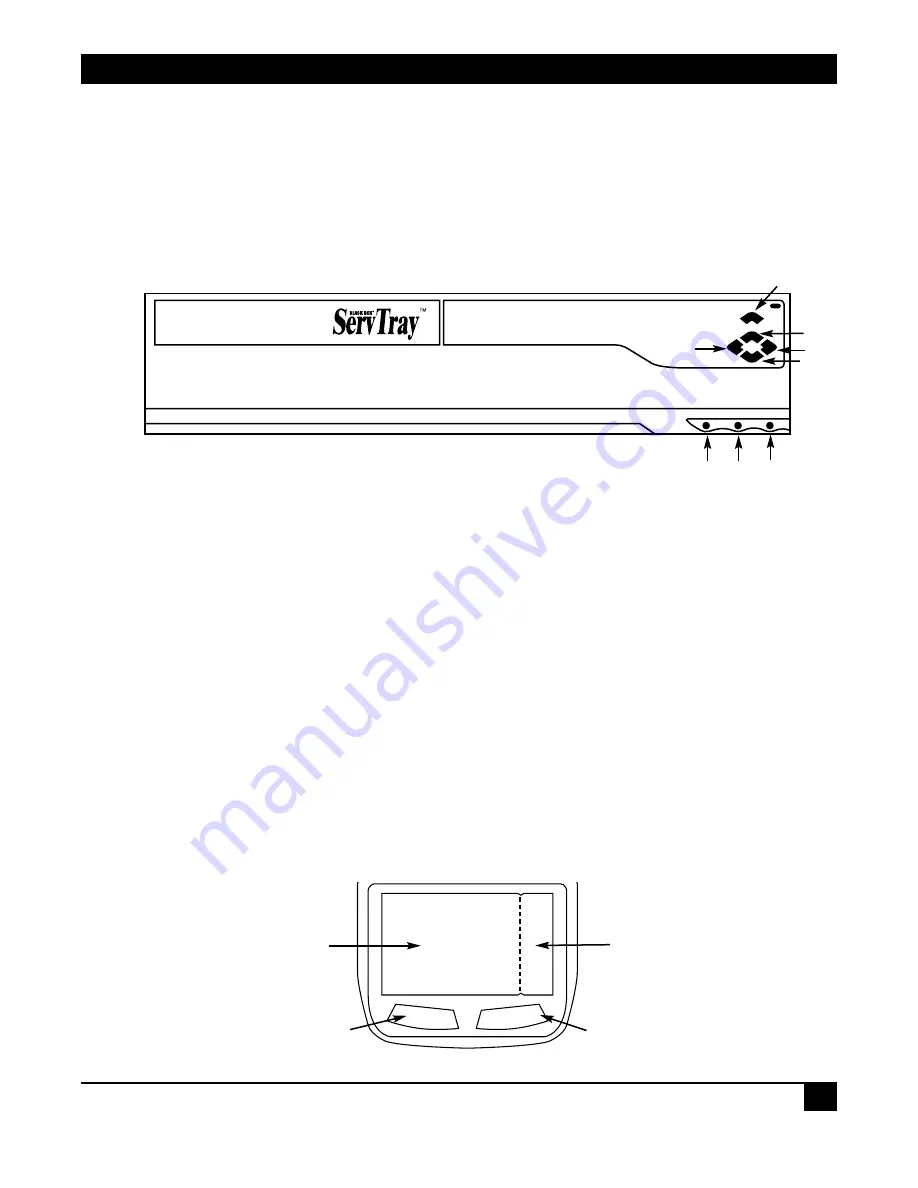
CHAPTER 4: Operation
13
4. Operation
Once the ServTray is installed and connected to a PS/2 CPU or ServSwitch, it’s ready for operation. Control the
unit via the buttons on the LCD panel (labeled 1 and 2 in Figure 4-1) and the LCD panel power switch (labeled
3 in Figure 4-1). Monitor the status via the keyboard status keys (labeled 4, 5, and 6 in Figure 4-1).
Figure 4-1. The ServTray’s components.
1. Use the LCD panel menu buttons (1 in Figure 1) to invoke the OSD menu to set the LCD panel as an
ordinary LCD monitor.
2. Use the LCD panel adjustment buttons (2 in Figure 4-1) to adjust settings for the LCD panel.
3. Switch the power to the LCD panel on or off via the power switch (3 in Figure 4-1).
4. Use the keyboard status keys (Num Lock, Caps Lock, and Scroll Lock) to view status.
• The Num Lock key (labeled 4) shows the Keyboard Num Lock status (on or off).
• The Caps Lock key (labeled 5) shows the Keyboard Caps Lock status (on or off).
• The Scroll Lock key (labeled 6) shows the Keyboard Scroll Lock status (on or off).
5. Use the touch pad (see Figure 4-2) to simulate a wheel mouse. The touch pad’s area to the right side of
the two small triangular marks is the simulated scroll area. Move your finger along this area to scroll up or
down on the computer’s screen. The touch pad area enables you to move the cursor anywhere on your
computer’s screen by sliding your finger along this area.
Figure 4-2. Touch pad.
1
1
3
2
2
4
5
6
Area for
scroll wheel
Area for
touch pad
Left button
Right button


